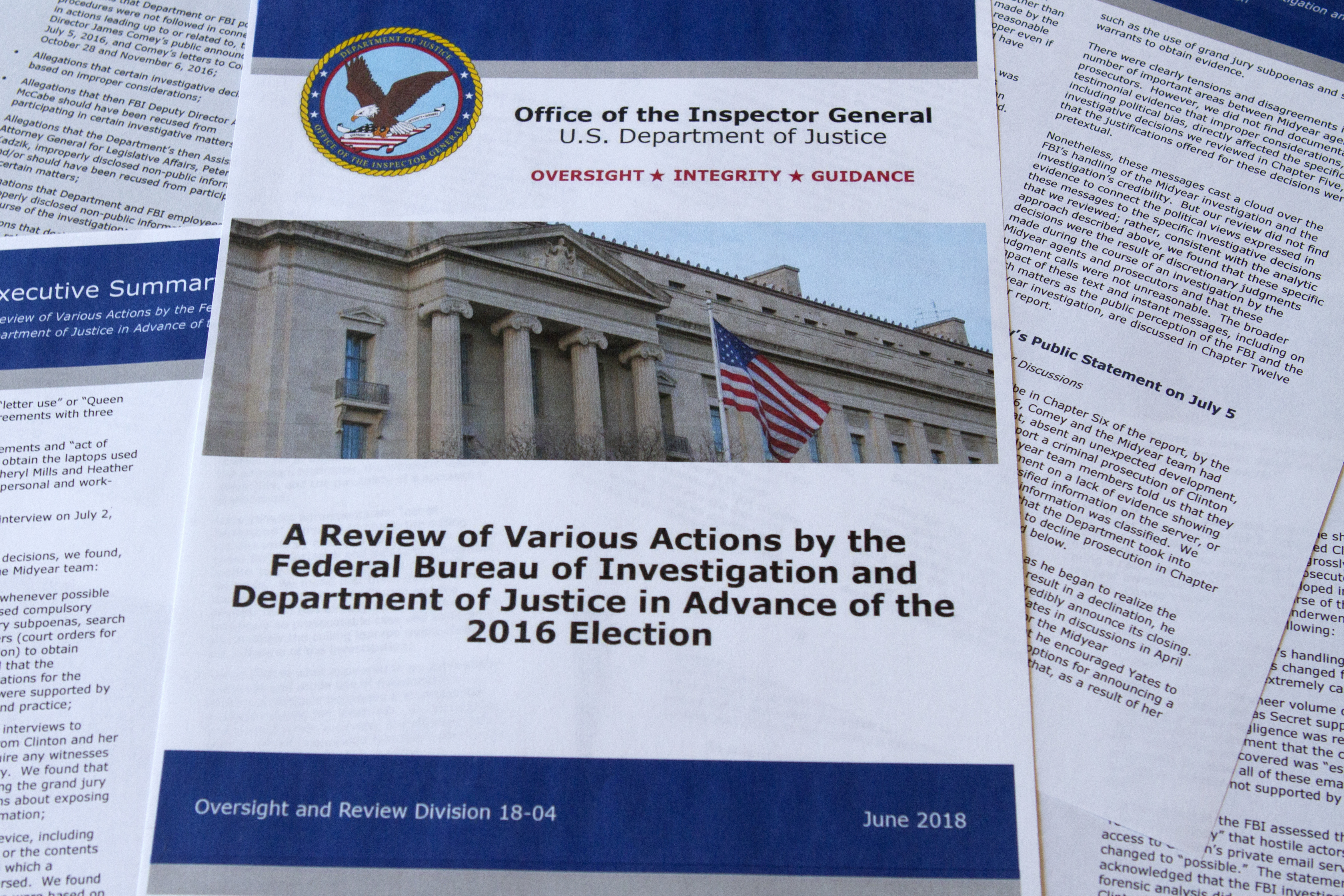We helped change the course of history.
We likely made the difference in a close presidential election.
We helped Russia undermine our democracy.
We compounded the self-righteous mistakes by the director of the Federal Bureau of Investigation.
We helped make Donald Trump president.
We were used.
That, ultimately, is the conclusion from a much-discussed report by the Justice Department’s inspector general about how the FBI handled the Hillary Clinton email investigation.
At least, that’s the conclusion conscientious journalists would take away from it, more than we should focus on salty, private text exchanges by FBI agents who didn’t much like Trump or even James Comey’s repeated assertion that he made the right call by intervening in the 2016 election at the 11th hour.
Whether Hillary Clinton was historically unpopular, should have paid more attention to Wisconsin, or made a grave mistake by using a private server are discussions that should be left to political pundits and political analysts. The rest of us should admit the role we played and quickly figure out a way to prevent it from happening again. Instead, few of us seem willing to do that kind of soul-searching.
That should concern us more than whatever Vladimir Putin has up his sleeves for the 2018 midterm elections or the 2020 presidential sweepstakes.
Traditional journalistic structures were used against our democracy, and we were the tools by which those efforts were rendered most effective. As the IG report makes clear, Comey made a grave mistake less than two weeks before election day when he alerted Congress, and essentially the public, to the discovery of supposedly new emails that might be germane to the Clinton probe. The FBI had not made sure the emails were relevant. The Bureau didn’t even know what was in them.
Admittedly, that forced news outlets throughout the country into a bind. Here was one of the top law enforcement officials in the country announcing the re-opening of a critically important investigation. There was no way to reasonably ignore such an announcement. But instead of forcing Comey and other officials to provide proof that the new evidence could make a difference in the investigation, we blared the announcement in banner headlines across the front pages of our largest newspapers and used it in saturated coverage on TV news.
It mattered little the level of nuance in some of the stories; the placement and attention we gave the Comey letter was enough to leave the impression that something important had occurred in the investigation. We found out days later nothing had, but by then the damage had been done, and there’s good reason to believe a shift in the polls during those few days was enough to swing the election from Clinton to Trump.
How to handle such an event if it reoccurs?
Put it on A20 under a small headline instead of A1 above the fold and in the segment after the weather on TV news, unless the law enforcement official making the announcement proves the newly discovered evidence is important as he suggests.
Yes, that means we run the risk of underplaying news. But it is better than the alternative, crippling a candidate’s campaign only to find out later the announcement was bogus. That would also free us from an unhealthy reliance upon law enforcement to determine our coverage decisions.
We must be more aware of how decisions by individual media outlets can cause an imbalance in what the public knows about competing presidential candidates. While it felt like a no-brainer to cull the suspiciously-timed release of DNC and Clinton-related emails by WikiLeaks and simply report on what seemed newsworthy, it was the wrong decision. We should no longer see ourselves as a collection of individual outlets. On issues as critical as these, narrative will always drown out nuance.
Maybe 99-and-a-half times out of 100, the kind of traditional journalistic due diligence we showed in our handling of the WikiLeaks emails would have been the correct one. In this case, it ended up harming our democracy and was precisely the one Russian officials likely anticipated studious American journalists would make. They likely knew we’d spend more time justifying our actions than contemplating ways to avoid being used in a similar fashion in future elections.
And they were right, because that’s precisely what we’ve been doing.
It’s not hyperbolic to say the media has not contended with this kind of environment before, one in which a president uses loud lies and nonstop misinformation as his primary political strategy; a contingent of media outlets and allies help him spread falsehoods and an alternative reality to millions of Americans; one of our top geopolitical foes boldly reached into our democracy and plans to do so again; and top law enforcement officials—like the contingent of FBI agents in the New York office referenced in the IG report—are influencing the outcomes of elections.
We cannot afford to stand pat. We can’t afford to rely upon old journalistic conventions that are being used against us. I don’t have definitive answers about what, precisely, we should do differently, given the complexity of problems we face.
And I know it will feel odd and uncomfortable to chart a different path. But we must. This is a different time. It would be unethical to stay the course.



